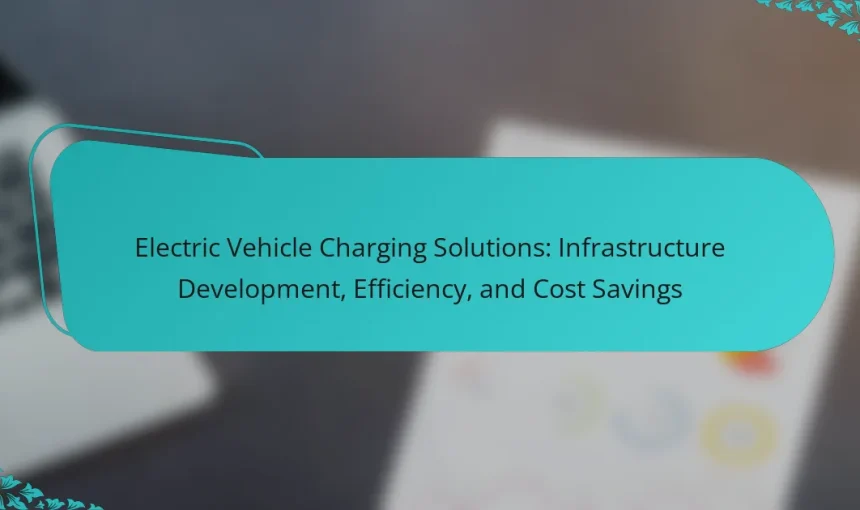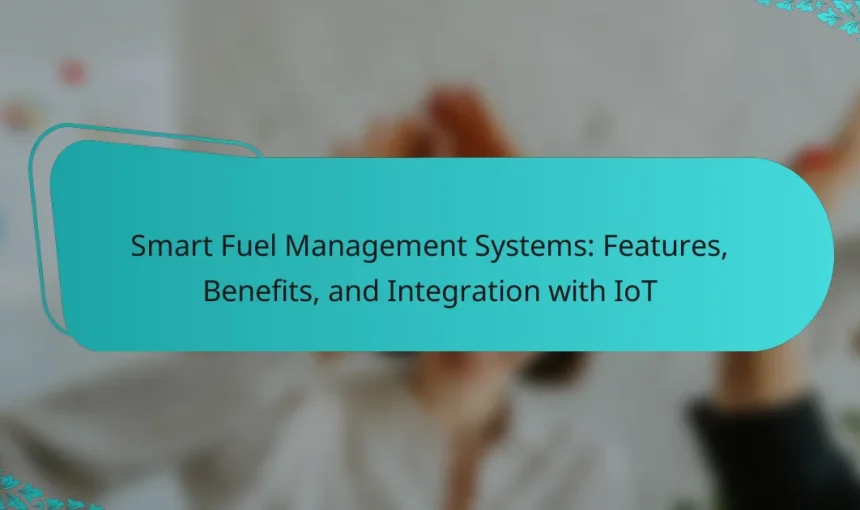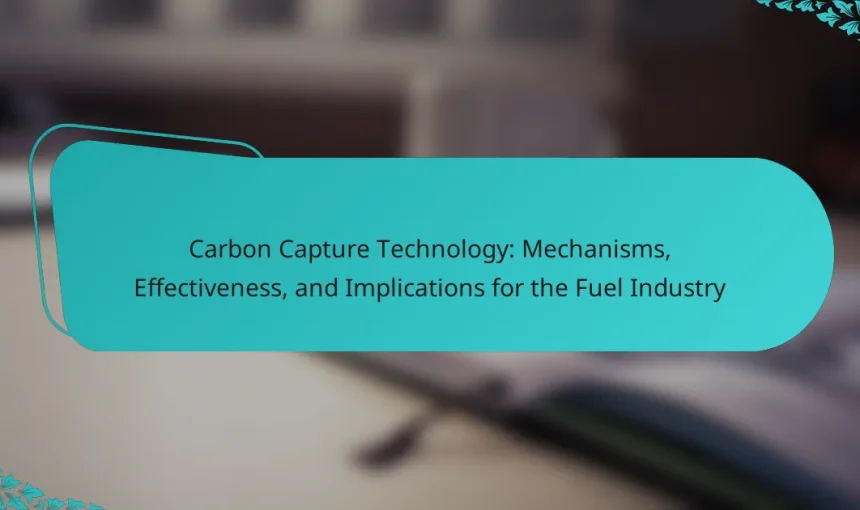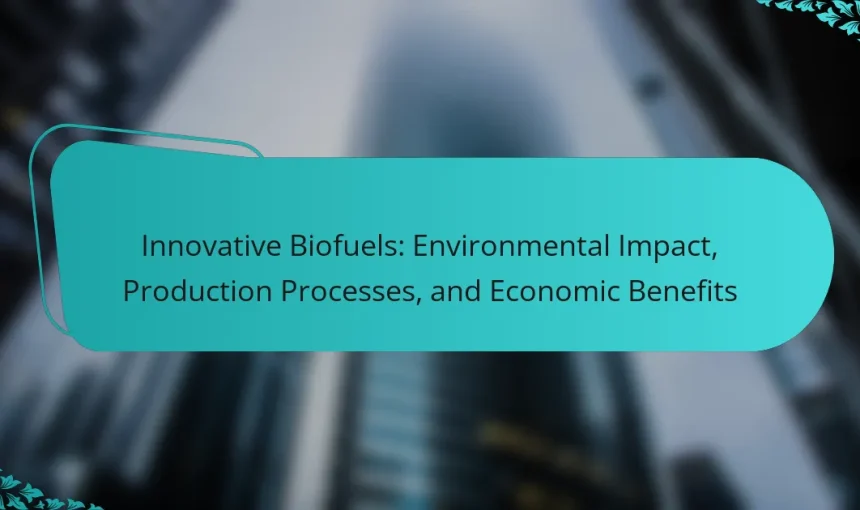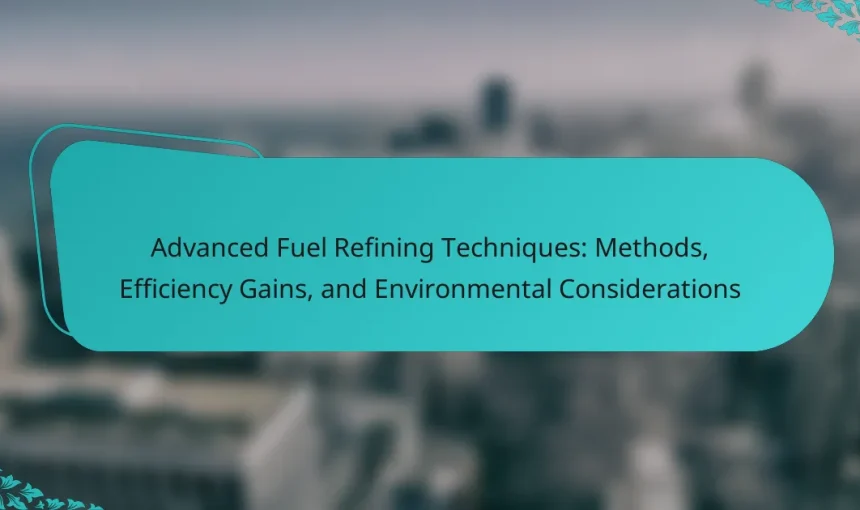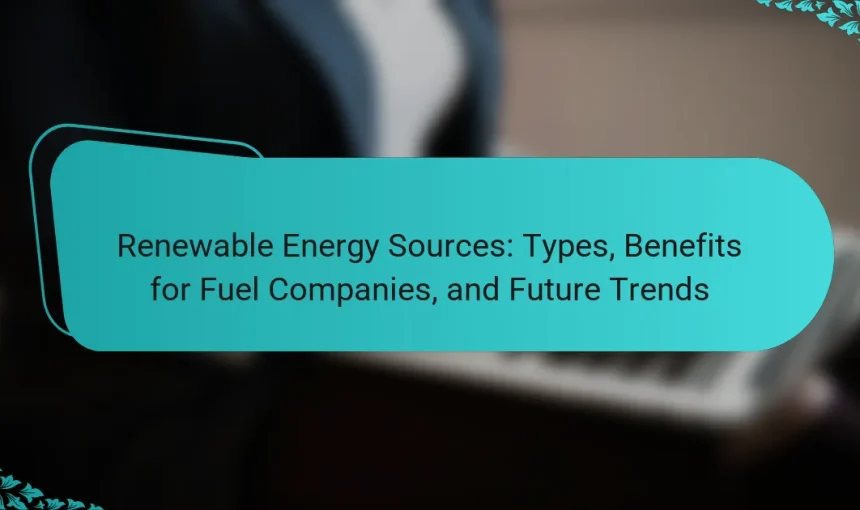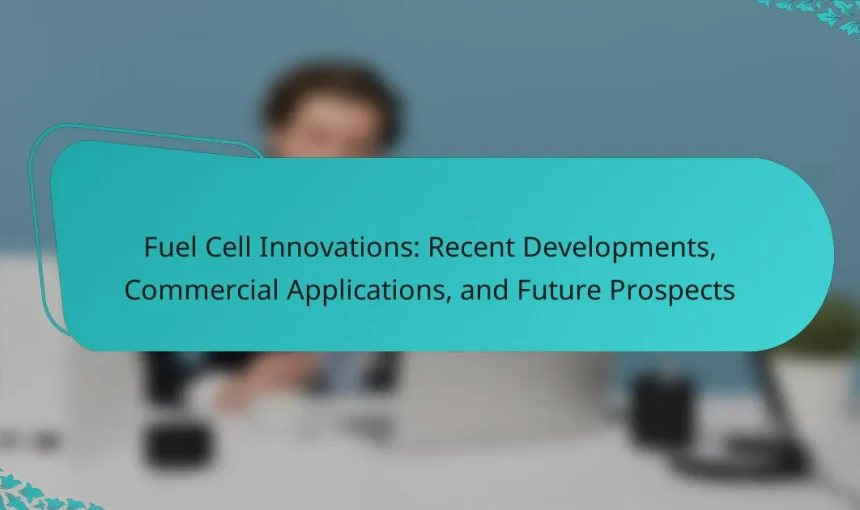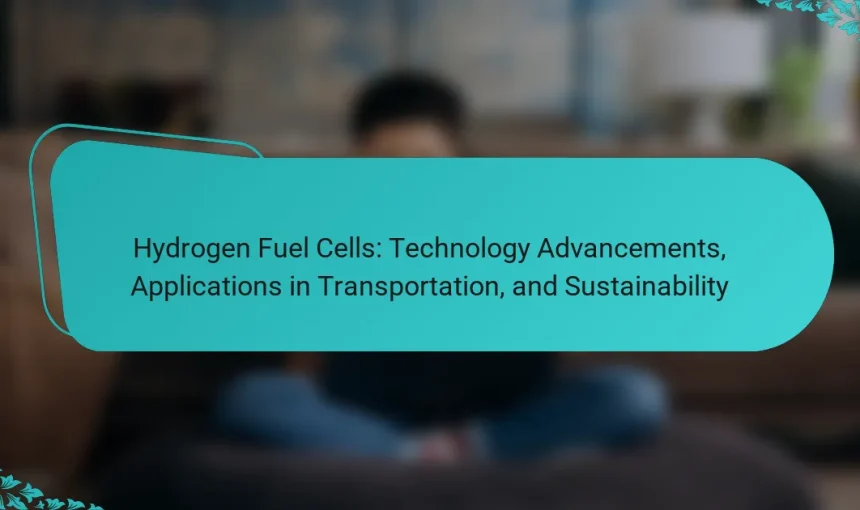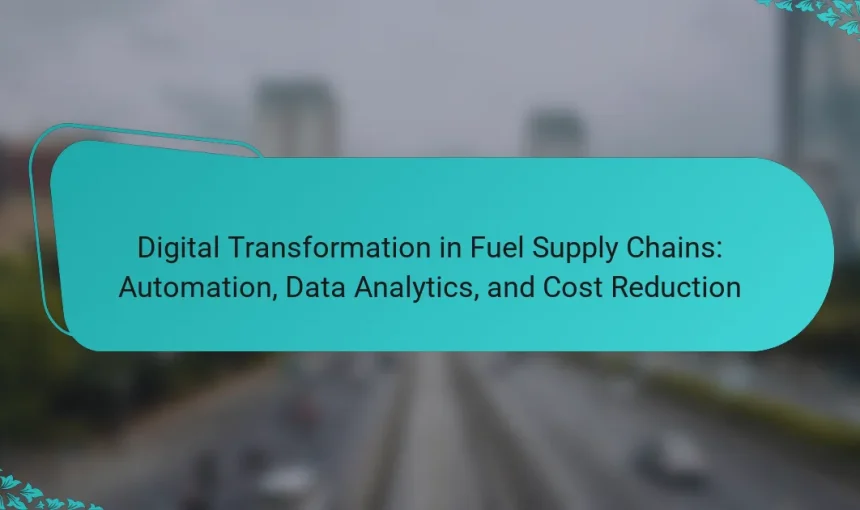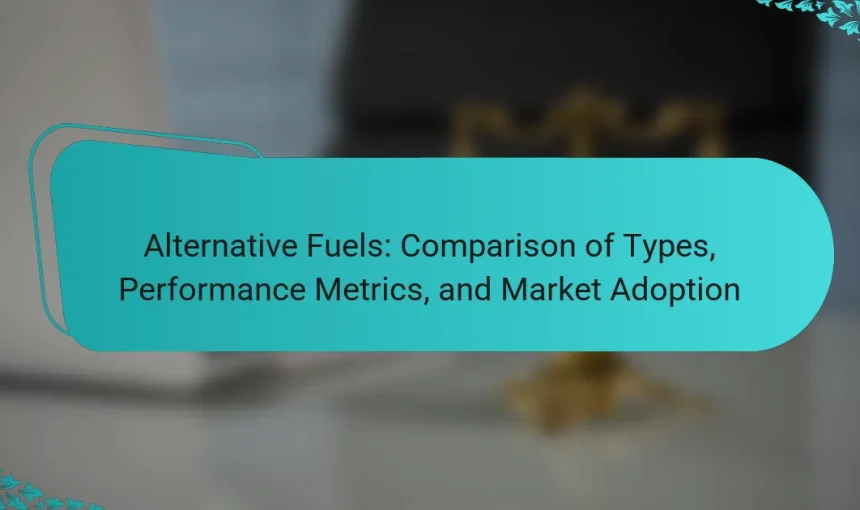What are Electric Vehicle Charging Solutions? Electric vehicle charging solutions are systems designed to provide electric energy to recharge electric vehicles (EVs). These solutions include various types of charging stations, such as Level 1, Level 2, and DC fast chargers. Level 1 chargers use standard household outlets and are suitable for overnight charging. Level 2 […]
What are Smart Fuel Management Systems? Smart Fuel Management Systems are advanced technological solutions designed to optimize fuel usage and reduce waste. These systems utilize real-time data analytics to monitor fuel levels, consumption patterns, and delivery processes. They often incorporate sensors and IoT technology for accurate tracking. By automating fuel management, organizations can enhance efficiency […]
What is Carbon Capture Technology? Carbon capture technology is a process designed to capture carbon dioxide emissions from sources like power plants. It prevents CO2 from entering the atmosphere, thereby reducing greenhouse gas emissions. The captured CO2 can be stored underground or utilized in various industrial processes. This technology is critical in combating climate change. […]
What are Innovative Biofuels? Innovative biofuels are advanced forms of biofuels that utilize new technologies for production. They are derived from renewable biological materials, such as agricultural waste, algae, and non-food crops. Unlike traditional biofuels, innovative biofuels aim to improve efficiency and reduce environmental impact. They can be produced through processes like fermentation, gasification, and […]
What are Advanced Fuel Refining Techniques? Advanced fuel refining techniques are innovative processes that enhance the quality and efficiency of fuel production. These methods include hydrocracking, catalytic reforming, and alkylation. Hydrocracking converts heavy oils into lighter, more valuable products using hydrogen and catalysts. Catalytic reforming improves the octane rating of gasoline by rearranging hydrocarbon molecules. […]
What are Renewable Energy Sources? Renewable energy sources are energy types that are replenished naturally. Common examples include solar, wind, hydroelectric, geothermal, and biomass energy. These sources are sustainable, meaning they can be used without depleting resources. According to the International Energy Agency, renewable energy accounted for nearly 30% of global electricity generation in 2020. […]
What are Fuel Cell Innovations? Fuel cell innovations refer to advancements in fuel cell technology that enhance efficiency, reduce costs, and expand applications. These innovations include new materials, improved designs, and enhanced fuel cell systems. For example, researchers are developing proton exchange membrane fuel cells using advanced catalysts to increase performance. Additionally, solid oxide fuel […]
What are Hydrogen Fuel Cells? Hydrogen fuel cells are devices that convert chemical energy from hydrogen into electricity. They operate through an electrochemical reaction between hydrogen and oxygen. This process produces electricity, water, and heat. Hydrogen fuel cells are known for their efficiency and low emissions. They can be used in various applications, including vehicles […]
What is Digital Transformation in Fuel Supply Chains? Digital transformation in fuel supply chains refers to the integration of digital technology across all areas of the supply chain. This transformation enhances operational efficiency, improves data analytics, and reduces costs. Companies adopt technologies like IoT, blockchain, and AI to streamline processes. These technologies enable real-time tracking […]
What are Alternative Fuels? Alternative fuels are energy sources that serve as substitutes for traditional fossil fuels. These fuels include biofuels, hydrogen, electricity, and natural gas. They are designed to reduce greenhouse gas emissions and dependence on petroleum. For example, biofuels are derived from organic materials, while hydrogen can be produced from water and renewable […]
